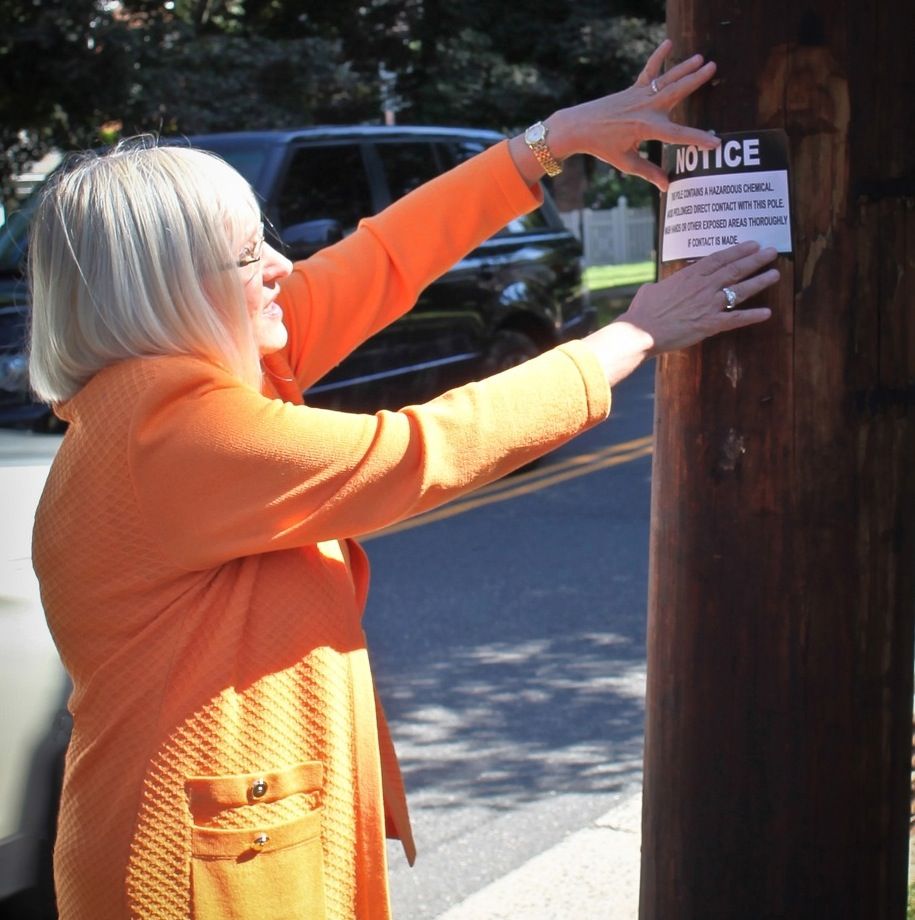North Hempstead Town Supervisor Judi Bosworth has called on the U.S. Environmental Protection Agency to outlaw the use of the chemical Pentachlorophenol by utility companies to preserve utility and electrical poles.
In a letter to the agency, Bosworth wrote that the continued use of the chemical is unsafe and “has the potential to affect the groundwater of millions of Long Island residents” and harm marine life if it gets into the island’s Sole Source Aquifer system.
“Given that the majority of other uses of the product have been prohibited since 1984, I request that you take the final step to eliminate this threat to our communities and our government and immediate move to ban the chemical, as other national governments have done,” Bosworth wrote.
Town officials said they have been notified that the EPA is reviewing Bosworth’s letter and that Penta is also being re-evaluated, having previously been deemed “extremely toxic” by the agency and a “probable” carcinogen.
The use of Pentachlorophenol – also known as Penta – became an issue after PSEG Long Island began installing 200 80-foot utility poles across parts of Great Neck, Manhasset and Port Washington treated with Penta.
The town council last September passed a resolution requiring utilities to install signs on poles treated with Penta after Jan. 31, 2015 that notify residents of the chemical’s presence and to wash their hands if a pole is touched.
The law carries a $500 fine for the first offense and a $1,000 fine for continued offenses.
PSEG LI and the Long Island Power Authority in January filed sued against the town in federal court over the law, alleging their First Amendment rights were violated to single out utility poles.
The law, the utilities argued, does not include “similarly situated wood products” treated with the chemical, like docks, piers, bulkheads, fence posts, park benches, picnic tables and railroad ties.
Bosworth in her State of the Town address in late January said she would continue to push for the banning of Penta.
“There’s no place in this community or any community for such a toxin to be used on an easily accessible object, within reach of school children, pedestrians and even pets,” she said.
Bosworth’s letter has also garnered the support of the civic group Residents for a More Beautiful Port Washington and the environmental non-profit Citizens Campaign for the Environment.
“As advocates for a walkable and vibrant downtown, these toxic poles abutting sidewalks, schools, parks, shops and restaurants run contrary to our vision,” the civic group said. “Furthermore, as advocates for the health and safety of our drinking water, these toxic poles put our sole source aquifer at risk.”
Adrienne Esposito, executive director of the Citizens Campaign for the Environment, said in a statement: “Exposure to [Pentachlorophenol] can harm the liver, kidneys, blood, lungs, nervous system, immune system and gastrointestinal tract. The question isn’t should we ban it, the question is why would we allow this toxic to continue to be used? What’s more important, preserving wood or preventing cancer? Safer alternatives should be found. We need our utility companies to be partners in protecting our waters, not polluters of our waters.”



